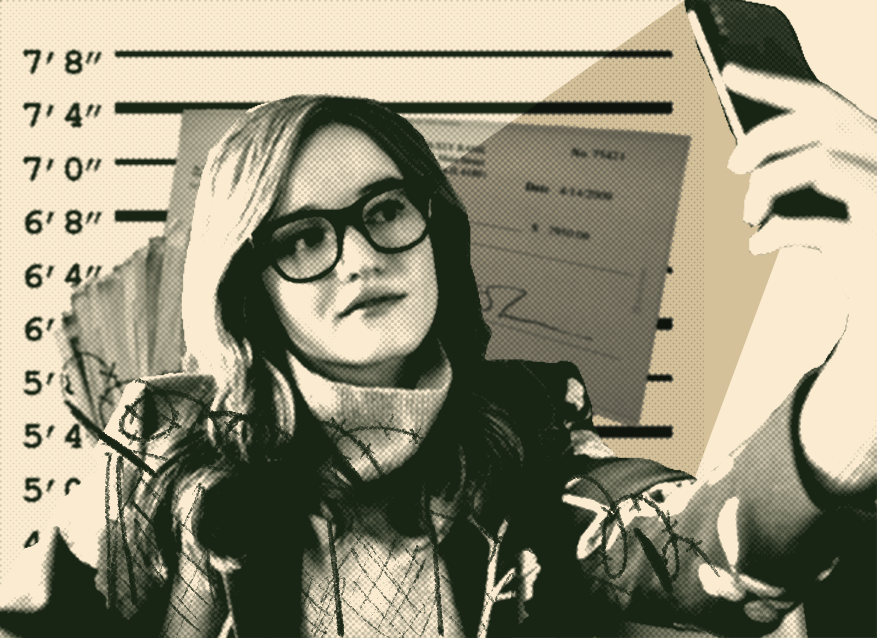Who is Anna Delvey (a.k.a. Anna Sorokin)? Is she a German heiress turned New York elite trying to build a legitimate business empire, or a middle-class Russian immigrant who conned her way to the top? In the Netflix limited series Inventing Anna, creator and producer Shonda Rhimes affirms that it is the latter. But she also raises questions about class identity and allegiance that exist at the intersection of the monied and the not—an intersection that exists at Georgetown, too.
For individuals from more modest upbringings, being surrounded by extreme wealth, whether that of New York socialites or B-frat members on LXR 2, can feel two-sided. On one hand, it almost feels validating to have made it to Georgetown without the money and the connections—that despite barriers, you’re here. But at the same time, attending a school like Georgetown where one in five students comes from the top one percent can be very alienating. The casual Balenciaga and countless Instagram posts from weekend trips abroad make it hard to feel secure when it’s difficult to even dream of accessing such wealth. Imposter syndrome abounds.
After moving from her working-class hometown in Russia to more prosperous areas in Germany, and then Paris and New York, Anna (Julia Garner) deals with this commonly internalized war between worlds by picking one side all together. She molds herself into exactly the type of person her desired crowd would feel comfortable socializing with—seemingly old money, classy, and arrogant. She sheds her old identity and immerses herself in high society, networking to the extreme to become a legitimate figure in the upper echelons. Somehow, she blends in successfully. When Vivian Kent (Anna Chlumsky), the journalist covering Anna’s con, asks Anna’s friend Val (James Cusati-Moyer) about her background, he is convinced that Anna is indeed a heiress because her attire and confidence exudes class, unlike Vivian’s try-hard attitude and knock-off clothes.
Anna’s friends do not assimilate as fully, but still face the challenges that come with not having money while being surrounded by those who do. Neff (Alexis Floyd), Anna’s concierge turned confidant, serves at the pleasure of rude hotel guests while also staying loyal to Anna in her most questionable moments. Rachel (Katie Lowes) is a Vanity Fair journalist who is happy to let Anna pay for spa sessions and nights out, but becomes distraught when saddled with Anna’s $60,000 bill on their trip to Marrakesh (though she makes that back and more with a book deal about the whole affair). Being simultaneously helped and harmed by wealth is a precarious line to walk.
Since watching the show, I’ve realized that I too have played into the allure of the Anna narrative. I understand the serotonin release of generosity and the thrill of putting down your card for a large check. While I might not have bounced checks and dodged unpaid bills like Anna, I have also been faced with the overwhelming anxiety that comes when you can’t actually afford kind gestures. After a month, I am still on the hook for $50 of a $250 happy hour tab I picked up that has not been paid back. That $50 is worth even more as someone without a trust fund and pursuing a career that pays very little. More often than not, however, I’ve played the role of Anna’s friends. The hand-me-downs of wealthier friends and the meals they cover have allowed me to live out a Georgetown elite fantasy on occasion. But even in those moments, I have always felt like a fraud.
At times, the show attempts to paint Anna’s con as a crusade against class and gender injustices. But this narrative is far from convincing because her politics are mired in hypocrisy. While trying to secure business connections and funding, Anna insists numerous times that if she were a man, she would have no problem navigating her new business venture. Although this may be true, Anna is no feminist. In fact, she exploits the true heiresses who take her under their wings.
As Vivian covers Anna’s story of deceit, she also attempts to portray it as a commentary on capitalism. But Anna is no Robin Hood, either. She did not redistribute her ill-gotten gains or alleviate economic inequalities for the poor. Instead, she further embedded herself within the system by creating another exclusive club for the elite—to start a legitimate cash flow to continue living lavishly. And when Anna’s debts, fraudulent banking, and stolen goods eventually caught up to her, she was still triumphant. She may have been outed as a con artist, but she got what she wanted—fame and Netflix fortune.
In the last episode, Anna, desperate to wear anything other than a frumpy prison jumpsuit, solicits help to acquire outfits for court. When Vivian lends Anna a white dress from her own closet, the innocent look for closing arguments is considered genius and bold by those following the story. But ordinary people like Vivian would never be able to receive that sort of commendation in their own clothes—they would have been ridiculed for their off-rack attempt at fashion in the same way that Val tore up Vivian’s outfit at their first meeting. Anna, as a person who grew up with little means, was only praised for the outfit because she garnered respect as an elite before she was exposed (and found fame) as a fraud.
Ultimately, Inventing Anna is a story that tells us what we should already know. Capitalism constantly cons us into spending money on things we can’t afford so we can try to play catch-up in a game we can never win. This reality has long been evident at Georgetown. Try as I—and many others—might to feel at home among the wealthy, I will never in my lifetime experience the level of material security that old money wealth brings. Anna managed to pick a side for herself, no matter the ethical consequences. Anna is the one who faked it ‘til she made it, and, in some ways, succeeded. But Anna is not the rule; she is the exception. For most people, the world picks a side for us through policies and structures that consistently reinforce class divides. Anna somewhat successfully circumvented these oppressive systems, but at what cost?





